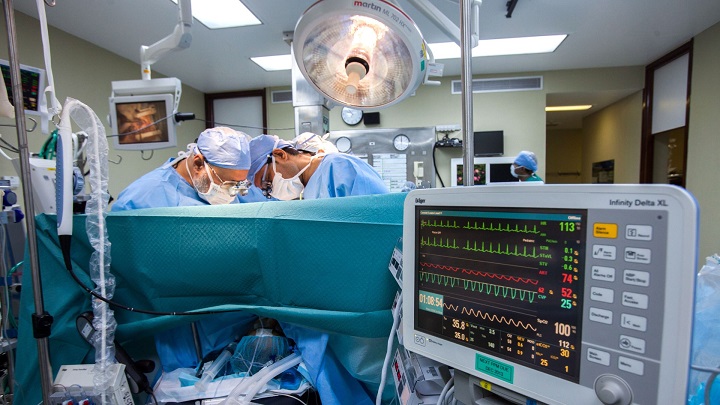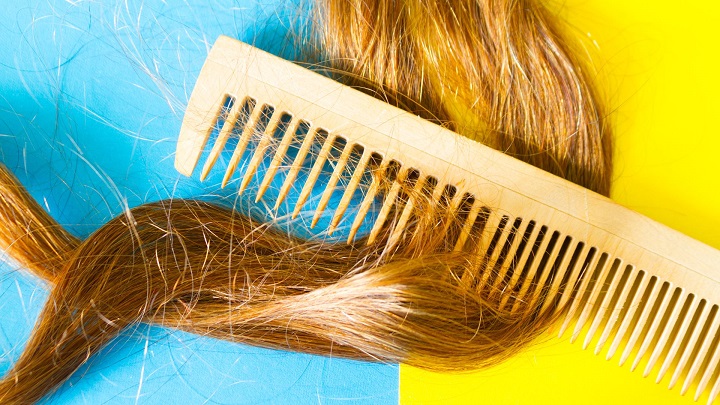How to Prevent Hair Loss after Surgery
- Written by Victor Lordhair
- Aug 15, 2022
- |
- 5 min read
 Listen to the full text
Listen to the full text
Post-surgery hair loss is the most common form of telogen effluvium that is usually triggered by the shock of surgery or the use of anesthesia during the surgery. While it is a temporary hair loss, damage can be aggressive if not addressed at the initial stage.
That’s why Lordhair - a global toupee and hair wig brand - decided to share a quick knowledge resource on how to prevent hair loss after surgery. This quick guide will help you prevent surgical hair loss from getting worse. Read on!
Prevent Post-Surgery Hair Loss
Below are the best ways to prevent post-surgery hair loss:
Biotin intake
Biotin is the most important natural vitamin found in onion, eggs, oats, almonds, and sweet potatoes. For individuals experiencing post-surgery hair loss, medical experts recommend increasing the biotin intake in order to curtail hair shedding. Multiple studies have also shown that biotin supplements help stimulate hair regrowth.
However, some biotin supplements might contain biotin at a higher level and the same could further aggravate hair fall. So, consult the dermatologist to know the right intake.
Lifestyle changes
Regular exercise may not undo hair loss but it can maintain good blood circulation to the scalp and reduce further damage. Performing simple exercises or yoga will boost the blood flow to the scalp and increase the supply of nutrients to the hair follicles.
Along with regular exercise, adding fiber to the diet is recommended by medical experts. This will prevent post-surgery hair loss to a great extent.
Shop hair integration systems for the quickest hair loss recovery
Stress management
Surgery can also cause stress, which is one of the major factors in triggering hair loss. For those who don’t know, surgery makes us prone to anxiety, uncertainty, and restlessness due to longevity in recovery. Stress management activities and meditation can help reduce the chances of mental health challenges triggered by surgery.
Avoid spending time alone; spend time with people you love. This will help you in avoiding stress and control hair shedding.
Medication for hair loss
While there are several drugs available claiming to stop hair loss, very few of them are FDA approved for the treatment of hair loss. Below are the two medications that are FDA approved and are recommended by hair experts across the globe:
Minoxidil: Available in both topical and oral form, minoxidil is a popular hair loss medication used to treat post-surgery hair loss. While the topical solution can be applied directly to the affected areas, oral medication can be consumed like a pill to stop hair loss triggered by surgery.
Finasteride: It is a prescription medication that is also approved by Food and Drug Administration (FDA) to stop hair loss. If the medication is taken consistently, results in most people can be seen in 4 months.

Prevent Post-Surgery Hair Loss: End Notes
These are the best ways to prevent hair loss due to surgery. Hair is a sensitive part of our body and is affected by minor hormonal changes and dietary imbalances. Therefore, the amount of hair falling can vary from person to person. In case of extreme thinning and damage, recovery is almost impossible with topical solutions and off-the-counter drugs.
For men in an advanced stage of hair loss, we suggest using a non-surgical hair replacement system for recovery. It will provide you with a head full of hair almost instantly and that too at an affordable price.
Our range of hairpieces for men and wigs for women is designed to be lightweight, comfortable, and natural-looking. Got any queries? Get in touch with Lordhair to consult our experts.
Check out our recent blogs as well!
Keratin treatment for thin hair
Women's hairpieces for the top of the head
Female hair loss in your 30s: Everything you need to know
Use hair integration systems for easy recovery


